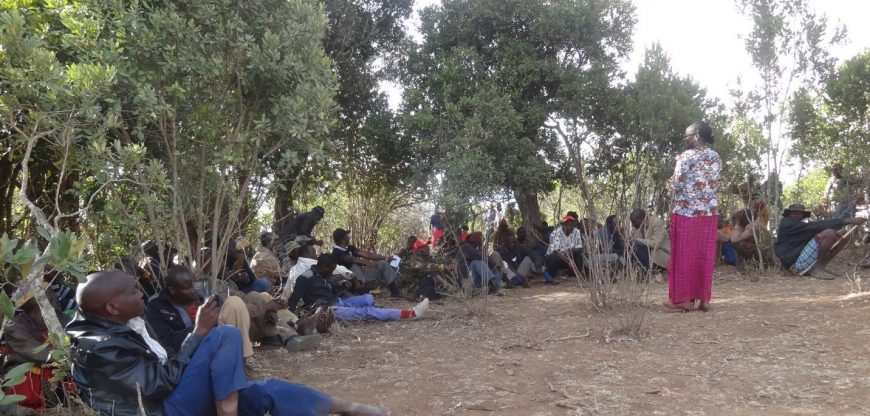Community dialogue reduces resource based conflicts in Samburu County

Long dry spells in Samburu County have resulted in increased resource based conflict among different pastoral communities. The conflict dynamic has changed pitting pastoral herders and ranchers in the county as the dry season progresses. Human-wildlife conflicts have also resulted in increased tensions among herders and ranchers as pastoralists move to protected ranches affecting the ecological balance of pristine protected areas. This is the Scenario in Leparachao, adjacent to Mugie ranch which is a protected area with lush pasture, all found in Samburu County where resource based conflict has been at their peak.
Community dialogue meetings to address the tension and drivers of conflict
Leparachao area was deserted for more than 5 years due to resource based conflicts between the Samburu and Pokot communities.The presence of armed groups hindered access to grazing areas. Instances of targeted raids and destruction of property were often reported as resource-based conflicts heightened especially during the end of the dry season and commencement of rains. The County Government of Samburu and Baringo, the National Government and ACTED, funded by ECHO, organized a series of community dialogue meetings to address the tension and drivers of conflict which include: mistrust, poor communication and the use of force in by headers in accessing grazing lands.
The dialogue meetings held in Leparachao, between the conflicting communities, have enhanced cohesion and integration between the Pokot, Samburu and Mugie ranch. This exchange proved very fruitful with both communities addressing issues and voicing their complaints openly. The conflicting communities formed a combined grazing/security committee that comprised of representatives from the Pokot, Samburu and representatives of Mugie ranch (a protected area with lush pasture and water points). Through the dialogue meetings, conflicting communities and the rancher resolved to live amicably and address grazing challenges to ensure that no illegal grazing would take place in the ranch without prior approval. This provision would ensure that the ranch’s rangeland is protected from poaching and degradation due to increased concentration of livestock.
Sustainable changes in Samburu County
After the dialogue meetings were held, a lot of positive changes have been realized in the area. Cases of wildlife poaching and indiscriminate killing have reduced, ranch property is protected from malicious damage, grazing committees have been set up, and communication has increased between herders and ranchers especially in Mugie ranch. These improvements have created a favorable environment for other business to flourish. Both communities (Pokot and Samburu) were able to jointly select 5,000 bulls from herders to graze in the ranch for three months, after which they were sold providing them with some valuable revenues. Both communities have realized the importance of preserving the grazing lands and learnt a lot on pasture management with the help of Ltungai conservancy. They appreciate the fact that the survival of their animals will be ensured during the drought period thanks to better grazing management and reduced conflicts in the area.
The meetings eased communication between communities, and freedom of movement across the rangeland. The relationship between farmers has remarkably improved and people are no longer afraid of moving within the region. Better discipline among the young herders was observed after they adhered to rules and regulations and promised to monitor law breakers.

This document covers humanitarian aid activities implemented with the financial assistance of the European Union. The views expressed herein should not be taken, in any way, to reflect the official opinion of the European Union, and the European Commission is not responsible for any use that may be made of the information it contains.